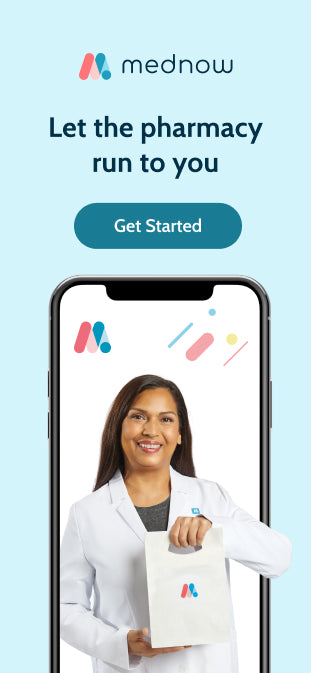Primary care providers (PCP) is an umbrella term for anyone who acts as the first line of defence against many serious medical conditions. They help monitor general health, provide preventative care services, and they diagnose medical problems that may have gone unnoticed by patients. Primary care providers include practitioners such as family doctors, nurse practitioners, and physician assistants and they play a key role in helping patients live healthy lives. A primary care provider should follow a patient’s health over the long term to ensure overall health and wellness.
A challenge that many newcomers to Canada face is finding a primary care provider that is right for them and their needs. Unfortunately, with the limited options many people have, they often settle for primary care providers that are not right for their circumstances, and may not receive the standard of care they need or expect.
For those who would like to avoid settling and wish to find one with a good understanding of your medical and/or cultural needs, we have some great tips that will help you in the process of finding the right one.
Acquiring Coverage
Health insurance in Canada is mainly covered through the tax system. The health care system is administered at the provincial and territorial level rather than the federal level, which is why the provincial government provides insurance to residents. The principle is valid across Canada, and every citizen has the right to universal medical care at any hospital or clinic in the nation.
The use of a health card provides access to the world-renowned, mostly free, Canadian healthcare system. It is available to all citizens in Canada and those who are legally residing or working there.
What Is Covered By A Health Card in Canada
All essential medical needs, such as hospital visits and primary care physicians and specialists are covered by the program. It covers close to all primary care treatment services, visits with specialists, many diagnostic tests and vaccinations.
What Is Not Covered By A Health Card In Canada
Certain health care services are not covered by the majority of the provinces, because they are not considered essential. This means you will likely have to pay off your dental or vision expenses on your own. Furthermore, the system does not cover some elective operations or cosmetic surgery which are not considered essential. Canadians may have prescription drug coverage from the provincial government, but typically there isn't full coverage, other than for select groups like low-income earners on social assistance.
Apply for a Health Card and public health insurance as soon as you arrive in Canada. Acquire the appropriate documents in any private or government medical centre.
Keep in mind that certain Canadian provinces, such as British Columbia, Ontario, New Brunswick, and Quebec, can take up to three months to issue you a Health Card.
Finding a Primary Care Provider According To Your Needs
When looking for a primary care provider for yourself or a loved one, it’s important to choose someone you can trust.
A primary care provider can:
- Suggest preventive treatments, such as screening tests and vaccines to maintain your health.
- Treat a wide range of ailments, including physical and mental health conditions.
- If you require further assistance with a specific medical problem, refer you to a specialist.
Important Considerations
Prior to searching for and selecting a primary care provider, thoughtfully considering your cultural, economic, and circumstantial needs can be beneficial in finding the best match. Be sure to keep the following in mind.
1) Find A Provider Who Speaks Your Language
Language barriers can make it harder for some patients to communicate with their primary care physician, and may prevent them from understanding what is wrong and how to fix it. If your English is limited or you are more comfortable discussing health concerns in your native language, factor this in when choosing a primary care provider.
2) Find A Provider Who Understands Your Cultural Needs
Having a primary care provider who is aware of your cultural background and familiar with the healthcare practices in your country can make a big difference in how you feel. It can be important to find a provider who has experience with patients from similar backgrounds or is open to learning about your culture in order to better treat you.
3) Find Someone Who is Conveniently Located
The distance between home and the primary care provider’s office can affect your ability to receive care. If you have to drive 1 hour each way to get to your provider’s office, it may be difficult for you to accommodate that in your schedule.
4) Find A Provider With Open Availability
Sometimes life can get busy, and it’s important that your primary care provider has flexible availability so you don’t miss out on any necessary check-ups. Some providers have morning, afternoon, and evening hours so getting in touch with them is never a problem. However, some only see patients during specific hours, which means you’re required to take time off work or school to get an appointment.
If you can’t find a primary care provider near you that meets all of these criteria, another thing to consider is the innovations brought about by virtual care, offered through platforms such as Mednow. These tools can connect you with a provider that meets your needs and preferences remotely.
Ask For Recommendations
Ask people you know if they have a provider they like. Family, friends, co-workers, and faith community members are good sources for recommendations. If you’re looking for a provider who speaks your language or the languages of your family members, asking them which providers they recommend can also be extremely helpful.
Often, getting referrals from trusted sources is one of the best ways to go in terms of finding a professional that will meet your needs and expectations. Many hospitals and health care systems also have online directories of providers who work with their patients, or you can find a provider by going to your province or territory’s official health website.
British Columbia: HealthLink BC
Alberta: Find a Family provider
Saskatchewan: Physician search tool
Manitoba: Family provider Finder
Ontario: Health Care Connect, College of Physicians and Surgeons of Ontario website
Quebec: Québec Family provider Finder, also register over the phone.
New Brunswick: Patient Connect
Nova Scotia: Need a Family Practice Registry
Prince Edward Island: Provincial Patient Registry
Newfoundland and Labrador: Find A provider NL
Yukon: Find A Family provider
Northwest Territories: Consider services at the Yellowknife Primary Care Centre or virtual care Nunavut: Health Facilities Map
Do Your Research And Consult Strategically
Make sure you do some research on the provider and understand what they have to offer before making any commitments. Talk with family or friends who may have experience with such providers and ask for their opinion, this will help you save time when searching for one.
Once you've done all the necessary research and defined your needs, it is time for you to meet the potential provider. Most primary care providers will offer a consultation at no cost to you. This is your chance to ask questions about their practice, listen carefully to what they are saying, and take note of how you feel during the conversation. If you don't understand something that was discussed or if there are inconsistencies in what the provider said, make sure you ask for clarification.
During the consultation, make sure you discuss what services they provide and if they have experience with your health concerns or other issues that you would like them to address. If there are any problems in communication between the two of you make a note of them and consider this relationship before making a commitment.
Most importantly, don't forget to mention your needs when interviewing potential providers; this will help them in understanding how they can best address your concerns. If you are looking for a provider who also has experience working with people from different backgrounds or cultures, make sure you ask about their cross-culture training. Don't be afraid to ask to see their certificates and licenses.
When looking for a provider, make sure to consider their attitude towards their patients. Are they attentive and willing to listen? Will they accept phone calls during off-hours if necessary? Also, do not forget to mention your cultural values. For instance, some cultures are more comfortable with same-sex practitioners while others have certain dietary restrictions that they would like their provider to be aware of. Also, make sure you discuss your geographical location and availability as some providers may not be willing to travel to the area that you live in and this will help them picture better what kind of service they can offer you.
If the meeting goes well and the two of you agree to work together, make sure to schedule a follow-up visit before leaving. When scheduling a follow-up appointment it is always a good idea to create a list of questions that you would like them to answer at your next visit. This will help you obtain important information about your health and the steps that will be used to treat it.
Conclusion
Finding a provider can be challenging but using available resources can make this process simpler!. It is important to remember that it is your health and you shouldn't allow anyone – whether medical staff or another patient – to pressure you into making any hasty choices.
Finding a provider or provider that fits your needs can be challenging but rewarding. Make sure to put some time and effort into finding the right provider that can address your concerns. Once you find a primary care provider, your life will become easier since they will be able to coordinate your health care between however many specialists and needs as necessary.
With some research and preparation, you should end up finding the best fit possible to address your health needs.
This article offers general information only and is not intended as medical or other professional advice. A healthcare provider should be consulted regarding your specific situation. While the information presented is believed to be factual and current, its accuracy is not guaranteed, and it should not be regarded as a complete analysis of the subjects discussed. All expressions of opinion reflect the judgment of the authors as of the date of publication and are subject to change. No endorsement of any third parties or their advice, opinions, information, products, or services is expressly given or implied by Mednow or its affiliates.
Commencer
